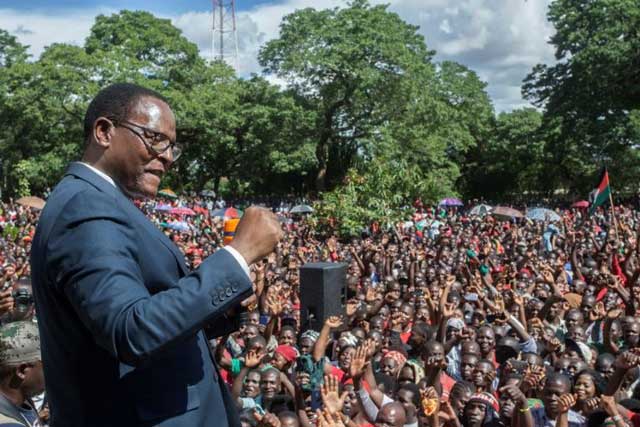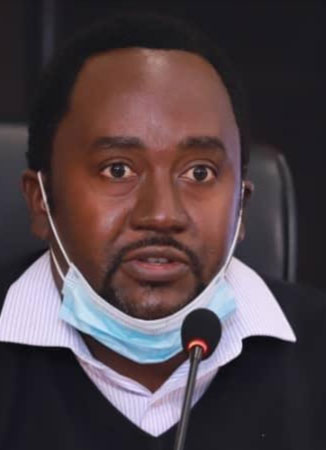
Here’s why Uganda needs special oversight mechanisms for COVID-related guidelines

COMMENT | Crispin Kaheru | It is increasingly clear that Uganda will head to the polls in 2021 despite some calls for the postponement of the elections until when THE COVID-19 pandemic wanes.
In principle, elections thrive on three fundamental elements (call them liberties)
The first is Freedom of movement (mobility), which relates to the right of individuals to travel from place to place within the territory of a country.
The second is Freedom of assembly (meeting), which relates to the right to hold ‘public meetings’ without any interference; and third is Freedom of association. This is the individual’s right to join or leave groups voluntarily – which relates to the right to form or join political parties, organizations, formations, alliances, coalitions or pressure-groups.
These three fundamental freedoms are guaranteed under Chapter 4 of the 1995 Constitution of Uganda.
Within the context of an electoral process, limitations on freedom of movement, assembly and association inevitably have a bearing on the very meaning of democratic, free and fair elections.
Probably as a reminder, COVID-19 is real, and it is a highly contagious pandemic. It has radically affected the political and socio-economic spheres of society and Uganda has not been spared. No one can certainly predict when it will be fully managed (if at all it will be).
At the same time, here we are with an election hardly six months away. Electoral activities are ordinarily high human-to-human interactive processes. Electoral activities such as political party delegates’ conferences, intraparty elections, training activities, nomination processes, campaigns and polling are all dependent on people coming together at a given time.
The context of COVID-19 demands that we urgently rethink the structuring of the traditionally human-intensive electoral activities to ensure people’s safety as well as active participation. Now, that’s a delicate balance to strike. But we have some prototypes – not to follow, but to keep in mind.
Malawi, a country of 18 million people held its Presidential elections on 23 June this year. Malawi’s polls were preceded by vibrant political campaigns. They had open-air campaign rallies which integrated health and safety measures. At campaigns, attendees were supposed to wear masks, socially distance and regularly sanitize.
Election euphoria however limited adherence to the set health and safety measures. Malawi and Uganda had about 800 cases on 23 June; a couple of weeks later, Malawi has over 2,400 cases while Uganda has slightly above 1,000 confirmed cases. Malawi had 11 deaths at the time it went to the polls; and now has over 40 deaths.
Zambia on the other hand has conducted about five regional elections during the COVID-19 pandemic. The Electoral Commission of Zambia instituted guidelines only permitting political meetings of 50 or less people. Even then, the rates of infection in Zambia have risen to over 1,800 now. There is a correlation between the areas where the regional elections took place and the rising rates of infections. Burundi, which held its presidential and national assembly elections on 20 May, has equally had its fair share of the devastating effects of COVID-19.
Most countries that have conducted elections during COVID-19 have suffered one major setback; they’ve instituted COVID-19 response guidelines in different aspects but have not introduced special oversight mechanisms to monitor compliance with COVID-19 health and safety measures.
Uganda is not Malawi, Uganda is not Zambia and neither is it Burundi or Benin, which have had elections during Covid-19. Therefore, Uganda is not bound to follow any of the models tried by the countries that have been there before. Uganda can and should set its own prototype. One that is fit-for-purpose, and fit for the context.
If it were possible, we probably would have waited for the COVID-19 storm to settle before going to the polls. The uncertainty around when COVID-19 will go away complicates that option. Constitutional rigidities further thwart that possibility.
There’s no doubt that within the context of COVID-19, we will need conduct elections that are more organized to seriously integrate health and safety measures. These measures should be made known to stakeholders. The clearer the measures, the better for the electorate and all those directly participating in elections.
But beyond the measures, can we have impartial oversight mechanisms for the guidelines we adopt? It is not a matter of having guidelines; it is also about having the capability to monitor their implementation. Some of the lapses already observed with regard to complying with the Covid-19 general guidelines are probably as a result of having no special mechanism to monitor enforcement and observance. Any institution coming up with guidelines should accordingly think of how those guidelines will be implemented and supervised in specific terms.
Secondly, can we scale up voter mobilization alongside voter education? We are hardly six months away from polls, but besides media coverage of political events, there is no tailored voter education or even voter mobilization efforts happening. Nearly all countries that have held elections in the context of COVID-19 have suffered serious challenges with voter participation. Voter turnout has been poor. We can only avert this if we get voter education off the ground now. Voter education messages should integrate health and safety information to avert the fear of participation in electoral activities.
Ultimately, what Ugandans would like is the sincere assurance that even as we embrace the changes impressed upon us by COVID-19, voters, candidates and all other stakeholders will have that fair go at the election regardless of their political, social or even economic standing. This assurance will have to come from the Electoral Commission. It will have to be stated, re-stated, but most importantly, it will have to be seen through actions.
****
 Crispin Kaheru is a leading Ugandan Socio-Political Commentator
Crispin Kaheru is a leading Ugandan Socio-Political Commentator
The post Here’s why Uganda needs special oversight mechanisms for COVID-related guidelines appeared first on The Independent Uganda:.
0 Response to "Here’s why Uganda needs special oversight mechanisms for COVID-related guidelines"
Post a Comment